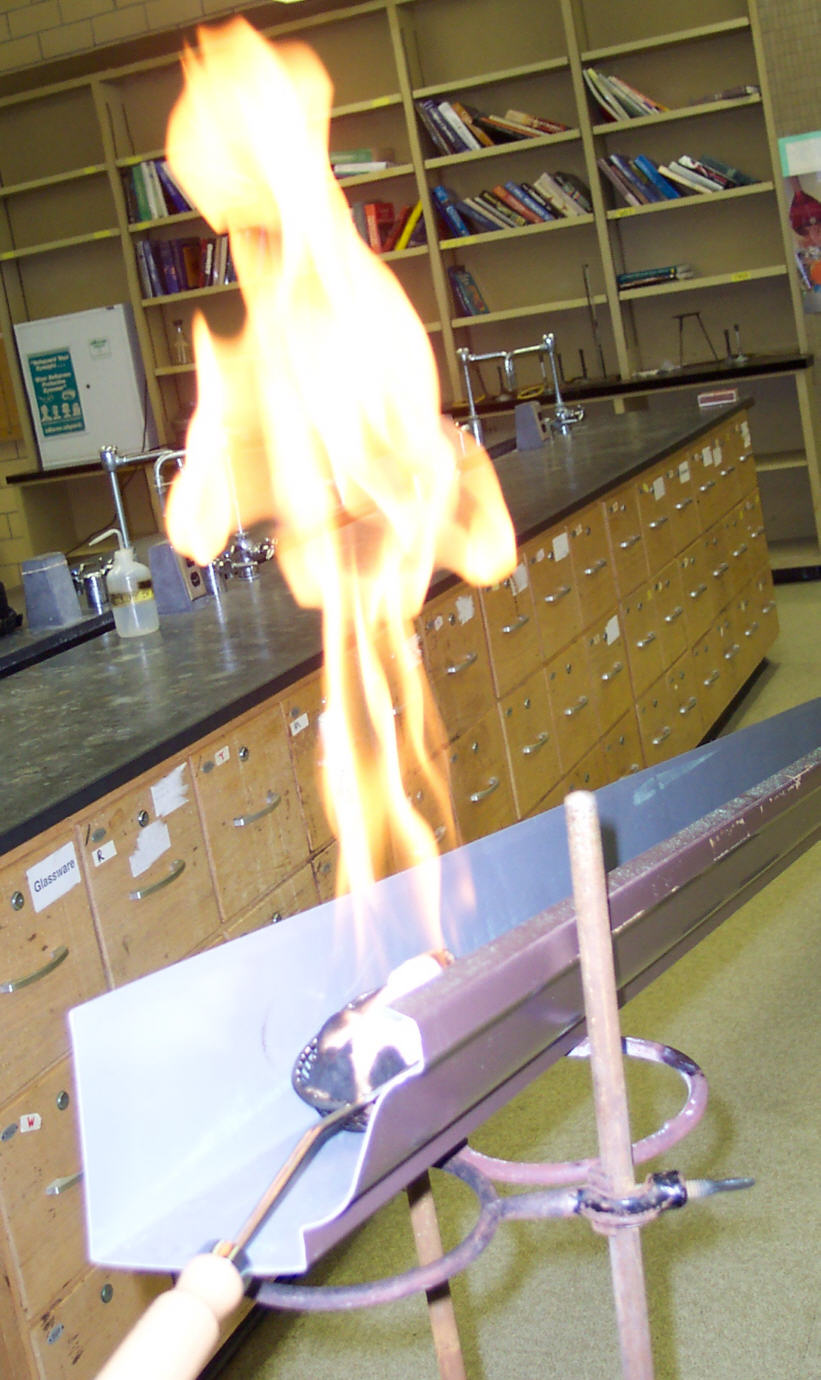Acetone
(bp
56 oC) is more volatile (evaporates
more readily) than water
(bp
100 oC). At the start each beaker contains
80 ml. After one hour elapsed time, the water
remains at 80 ml (evaporation
is negligible) but the acetone
has evaporated
down to 40 ml. Note condensation on the acetone
beaker because evaporation
is endothermic.
Click
here to see a time-lapse video.
|
